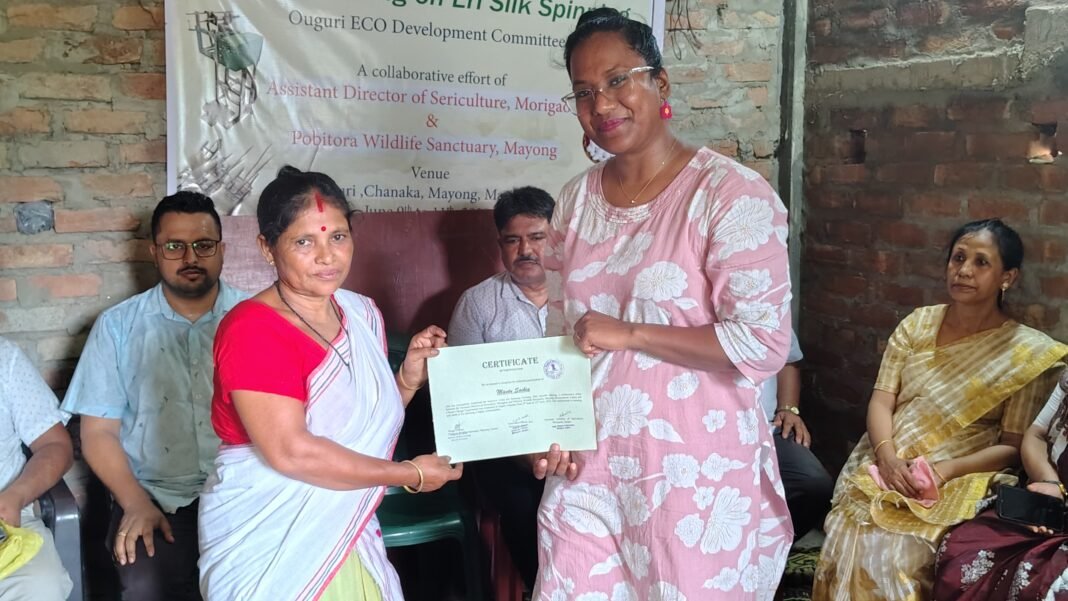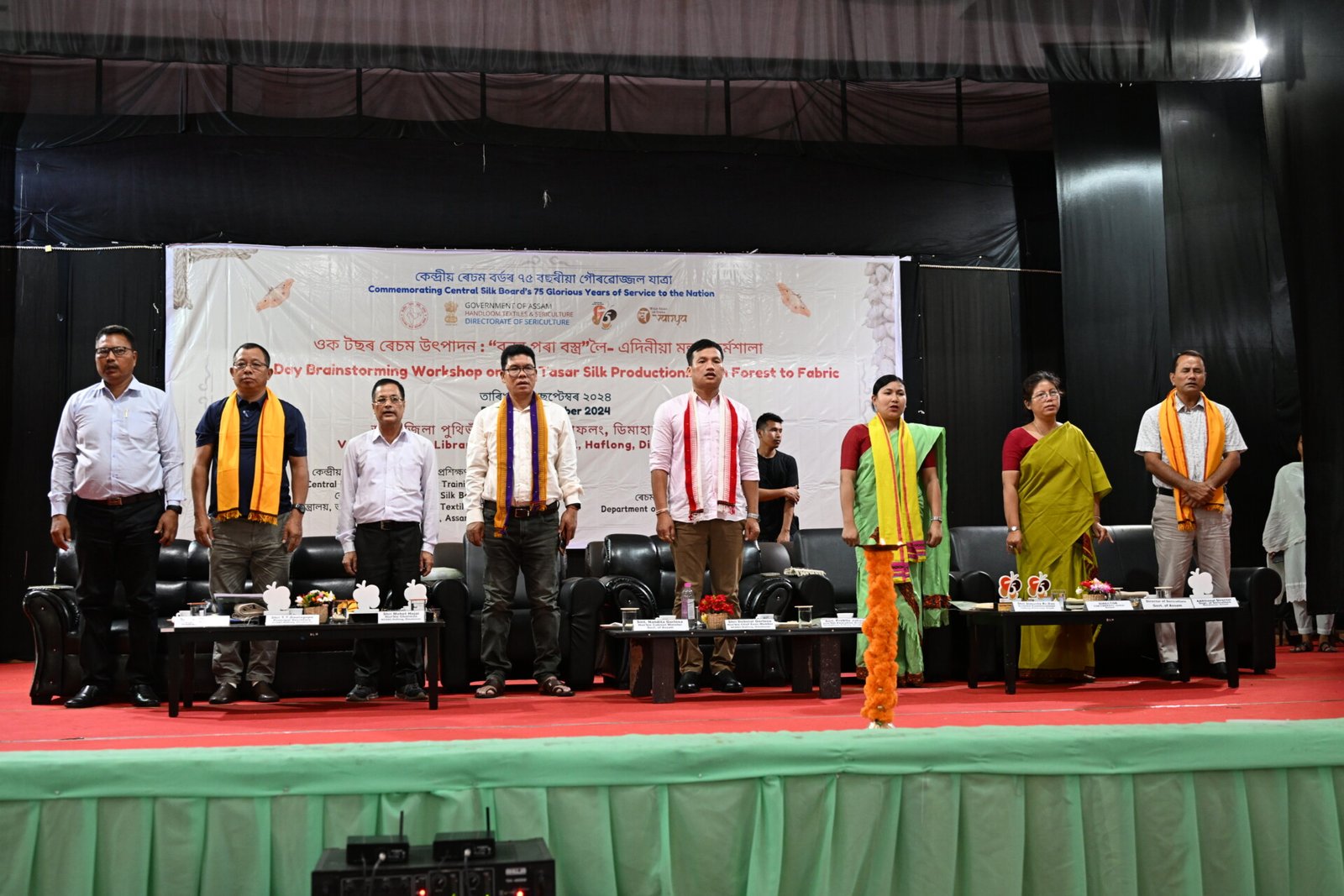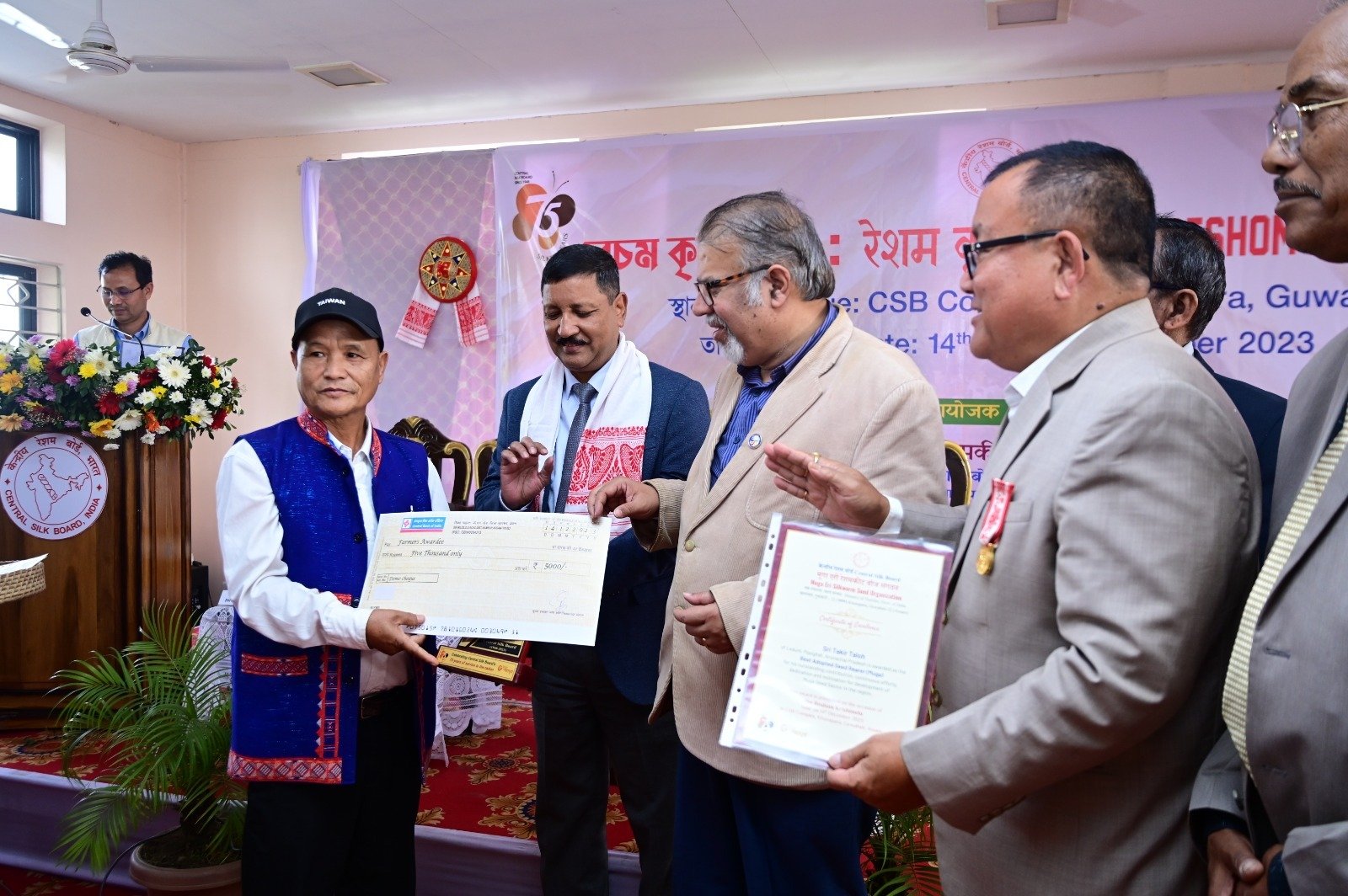HT Correspondent
MORIGAON, June 13: A five-day training programme on Eri silk spinning concluded successfully today at Ouguri, under the aegis of the Ouguri Eco Development Committee, situated on the periphery of the Pobitora Wildlife Sanctuary. The initiative was jointly organized by the Assistant Director of Sericulture, Morigaon, and the Pobitora Wildlife Sanctuary authorities, with the aim of fostering sustainable livelihoods for women living in fringe forest communities.
This marks the first collaborative initiative by the Sericulture Department and the Range Office of Pobitora WLS to revive Assam’s traditional silk heritage—Eri, Muga, and Pat—while providing eco-friendly income alternatives to forest-adjacent populations. Eri silk, noted for its environmentally conscious production methods involving organic farming, sustainable fuel, and manure generation, presents a viable and ethical source of livelihood for rural communities.
The training programme was tailored for ten women weavers from the Ouguri Eco Development Committee. It focused on imparting practical, hands-on skills in Eri silk spinning—an artisanal craft that holds both cultural and economic value. Participants received certificates upon completion of the training from key dignitaries including Nirupam Roy Choudhury, In-Charge Assistant Director of the Morigaon Sericulture Division; Pranjal Baruah, AFS and Range Officer of Pobitora WLS; Sujeeta Saikia, Extension Officer, Sericulture; and Nripen Chandra Nath, Sericulture Inspector.
The technical sessions were led by Master Trainer Ms. Zaheda Begum, Assistant Manager at the Eri Spinning Training Center, who was supported by trainer Anita Borah. Their expert guidance provided the participants with vital techniques and knowledge that will empower them to take up silk spinning as a meaningful occupation.
Pobitora Wildlife Sanctuary currently operates five Eco Development Committees (EDCs) in surrounding villages to promote wildlife protection through community-based participation and livelihood support. This Eri silk training is a vital step in integrating conservation efforts with socio-economic development, providing alternative livelihood avenues that help reduce dependency on forest resources and mitigate human-wildlife conflict. Officials expressed optimism that this initiative would not only rejuvenate Assam’s vanishing silk traditions but also instill a sense of stewardship among local residents toward environmental conservation—achieving a delicate balance between heritage preservation and sustainable progress.












